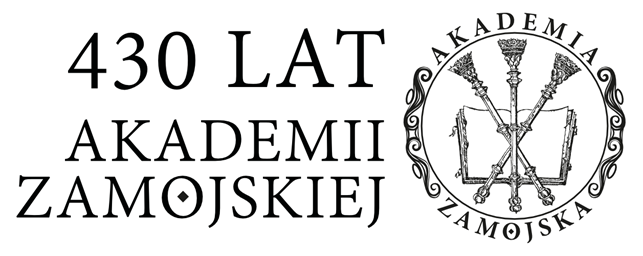Baranowski B., Ludzie gościńca w XVII–XVIII w., Łódź 1986.
Baranowski B., Życie codzienne małego miasteczka w XVII–XVIII wieku, Warszawa 1975.
Bogucka M., Życie codzienne w Gdańsku. Wiek XVI–XVII, Warszawa 1967.
Charitas. Miłosierdzie i opieka społeczna w ideologii, normach postępowania i praktyce społeczności wyznaniowych w Rzeczypospolitej XVI–XVIII wieku, red. U. Augustyniak, A. Karpiński, Warszawa 1999.
Concilium provincionale R. Polonie quo Paulo v Pontifice Bernardus Maciejowski […] habuit Petricoviae MDCVII, Officina Andreae Petricovii Typographi 1609.
Dług śmiertelności wypłacić potrzeba. Wybór testamentów mieszczan krakowskich z XVII–XVIII wieku, oprac. E. Danowska, Kraków 2011.
Dokumenty soborów powszechnych, t. 4: (1511–1870) Lateran v, Trydent, Watykan i, oprac. A. Baron, H. Pietras, Kraków 2007.
Dramaty staropolskie. Antologia, oprac. J. Lewański, t. 1, Warszawa 1959.
Dramaty staropolskie. Antologia, oprac. J. Lewański, t. 3, Warszawa 1961.
Flaga J., Bractwa religijne w Rzeczypospolitej w XVII i XVIII wieku, Lublin 2004.
Frančič M., Ludzie luźni w osiemnastowiecznym Krakowie, Wrocław 1967.
Geremek B., Ludzie marginesu w średniowiecznym Paryżu: XIV–XV wiek, Poznań 2003.
Geremek B., Obraz kondycji żebraczej w polskiej literaturze XVI i XVII wieku, w: Kultura polska a kultura europejska. Prace ofiarowane Januszowi Tazbirowi w sześćdziesiątą rocznicę urodzin, Warszawa 1987.
Geremek B., Życie codzienne w Paryżu Franciszka Villona, Warszawa 1972.
Goglin J. L., Nędzarze w średniowiecznej Europie, Warszawa 1998.
Góralski Z., Działalność charytatywna w Polsce przedrozbiorowej, Warszawa 1973.
Góralski Z., Szpitale na Lubelszczyźnie w okresie przedrozbiorowym, Warszawa 1982.
Grodziski S., Ludzie luźni. Studium z historii państwa i prawa polskiego, Kraków 1961.
Hoszowski S., Klęski elementarne w Polsce w latach 1587–1648, w: Prace z dziejów Polski feudalnej ofiarowane Romanowi Grodeckiemu, Warszawa 1960.
Jabłońska A., Funkcje społeczne parafii archidiakonatu gnieźnieńskiego w XVII wieku, Kielce 2013.
Jabłońska A., XVII-wieczny szpital św. Marty w Gnieźnie w świetle księgi rachunkowej, „Nasza Przeszłość”, 9 (2008) s. 117–166.
Jeziorski P. A., Margines społeczny w dużych miastach Prus i Inflant w późnym średniowieczu i wczesnych czasach nowożytnych, Toruń 2009.
Kaczor D., Przestępczość kryminalna i wymiar sprawiedliwości w Gdańsku w XVI–XVIII wieku, Gdańsk 2005.
Kamler M., Złoczyńcy. Przestępczość w koronie w drugiej połowie XVI i w pierwszej połowie XVII wieku (w świetle ksiąg sądowych miejskich), Warszawa 2010.
Karpiński A., Pauperes. O mieszkańcach Warszawy XVI i XVII wieku, Warszawa 1983.
Karpiński A., W walce z niewidzialnym wrogiem. Epidemia chorób zakaźnych w XVI–XVIII wieku i ich następstwa demograficzne, społeczno-ekonomiczne i polityczne, Warszawa 2000.
Kasjaniuk E., Miłosierdzie, w: Encyklopedia katolicka, t. 12, Lublin 2008, kol. 1088–1091.
Kasjaniuk E., Modlitwa, w: Encyklopedia katolicka, t. 12, kol. 1503.
Kępski C., Ideał miłosierdzia a dobroczynność i opieka, Lublin 2002.
Kitowicz J., Opis obyczajów za panowania Augusta III, oprac. R. Pollak, Wrocław 2003.
Kracik J., Hultaje, złoczyńcy, wszetecznice w dawnym Krakowie, Kraków 2012.
Kracik J., M. Rożek, Hultaje, złoczyńcy, wszetecznice w dawnym Krakowie. O marginesie społecznym XVII–XVIII w., Kraków 1986.
Kropidłowski Z., Formy opieki nad ubogimi w Gdańsku od XVI do XVIII w., Gdańsk 1992.
Kropidłowski Z., Organizacja dzieł miłosierdzia chrześcijańskiego w Gdańsku w XVI–XVIII w., w: Charitas. Miłosierdzie i opieka społeczna w ideologii, normach postępowania i praktyce społeczności wyznaniowych w Rzeczypospolitej XVI–XVIII w., red. U. Augustyniak, A. Karpiński, Warszawa 1999, s. 139–160.
Kuklo C., Demografia Rzeczypospolitej przedrozbiorowej, Warszawa 2009.
Leś E., Od filantropii do pomocniczości. Studium porównawcze rozwoju i działalności organizacji społecznych, Warszawa 2000.
Męczkowski W., Monografia historyczna szpitali w Królestwie Polskim, Warszawa 1907.
Michajłowa K., Dziad wędrowny w kulturze ludowej Słowian, Warszawa 2010.
Mikołajczyk M., Przestępstwo i kara w prawie miast Polski południowej XVI–XVIII wieku, Katowice 1998.
Miłosierdzie w postawie ludzkiej, red. W. Słomka, Lublin 1989.
Misiurek J., Modlitwa. W chrześcijaństwie, w: Encyklopedia katolicka, t. 12, s. 1528–1543.
Młotek A., Jałmużna, w: Encyklopedia katolicka, t. 7, Lublin 1997, kol. 738–741.
Peregrynacyja dziadowska, w: Dramaty staropolskie. Antologia, oprac. J. Lewański, t. 3, Warszawa 1961.
Podgórska-Klawe Z., Od hospicjum do współczesnego szpitala. Rozwój historyczny problematyki szpitalnej w Polsce do k. XIX w., Wrocław 1981.
Reymont W. S., Chłopi, t. 1–2, Wrocław 1999.
Słoń M., Szpitale średniowiecznego Wrocławia, Warszawa 2000.
Słownik staropolski, t. 11, Kraków 1995.
Surdacki M., Edukacja i opieka społeczna w Urzędowie XV–XVIII w., Lublin 2004.
Surdacki M., Opieka społeczna w Polsce do końca XVIII wieku, Lublin 2015.
Surdacki M., Opieka społeczna w Wielkopolsce Zachodniej w XVII i XVIII wieku, Lublin 1992.
Szarszewski A., Najstarsze księgi rachunkowe szpitali gdańskich. Księga rachunkowa szpitala Bożego Ciała (l. 1580–1581). Księga rachunkowa zjednoczonych szpitali Św. Ducha i św. Elżbiety (l. 1585–1593), Toruń 2005.
Szpitalnictwo w dawnej Polsce, red. M. Dąbrowska, J. Kruppé, Warszawa 1998.
Testamenty szlachty krakowskiej, oprac. A. Falniowska-Gradowska, Kraków 1997.
Tragedia żebracza nowouczyniona, w: Dramaty staropolskie, Antologia, oprac. J. Lewański, t. 1, Warszawa 1959.
Wachholz L., Szpitale krakowskie 1220–1920, t. 1–2, Kraków 1921–1924.
Walewander A., Kronika klęsk elementarnych w Polsce i krajach sąsiednich w latach 1450–1586, Lwów 1932.
Zaremska H., Bractwa w średniowiecznym Krakowie. Studium form społecznych życia religijnego, Wrocław 1977.



 Język Polski
Język Polski
 English
English
 Italiano
Italiano

